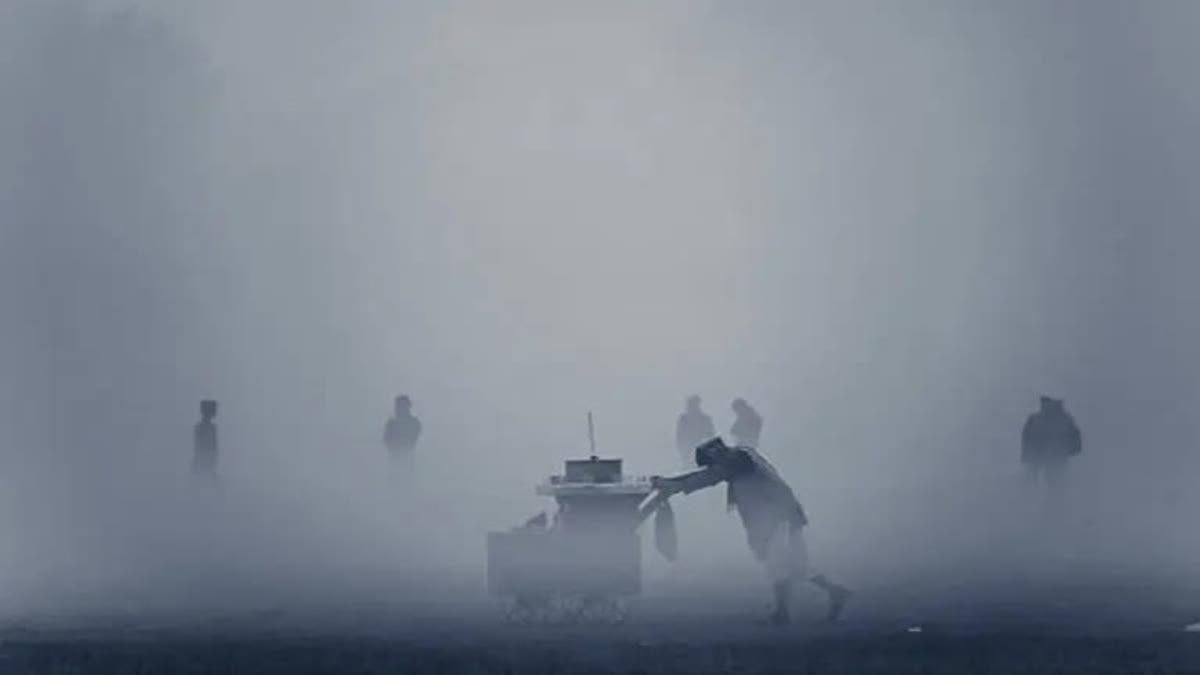New Delhi:A toxic haze lingered over Delhi for the sixth consecutive day on Sunday as pollution levels once again reached the severe plus category due to unfavourable wind conditions, particularly calm winds during the night. The air quality index deteriorated from 415 at 4 pm on Saturday to 460 at 7 am on Sunday.
Under the Centre's air pollution control plan, all emergency measures, including a ban on polluting trucks, commercial four-wheelers, and all types of construction, are mandated to be initiated and enforced in the National Capital Region if the AQI crosses the 450-mark. The concentration of PM2.5, fine particulate matter capable of penetrating deep into the respiratory system and triggering health problems, exceeded the government-prescribed safe limit of 60 micrograms per cubic metre by seven to eight times at multiple locations throughout Delhi-NCR. It was 80 to 100 times the healthy limit of 5 micrograms per cubic meter set by the WHO.
Air quality in Delhi-NCR declined over the past week due to a gradual drop in temperatures, calm winds that trap pollution, and a surge in post-harvest paddy straw burning across Punjab and Haryana. Data from the Central Pollution Control Board shows that Delhi's air quality index increased by over 200 points between October 27 and November 3, culminating in a descent into the 'severe plus' category (above 450) on Friday.
Friday's 24-hour average AQI (468) was the worst since the previous high of 471 recorded on November 12, 2021. The air quality in neighbouring Ghaziabad (410), Gurugram (441), Noida (436), Greater Noida (467), and Faridabad (461) also reported hazardous air quality. While the capital is grappling with an air crisis, a first-of-its-kind study launched by the city government to help identify different sources of pollution in the city and accordingly take mitigating action was stopped recently on the orders of Delhi Pollution Control Committee Chairman Ashwani Kumar.
Kumar also "unilaterally" ordered a halt to the operation of a large smog tower installed at Connaught Place two years ago to mitigate air pollution in the area, according to Delhi Environment Minister Gopal Rai. Delhi's air quality ranks among the worst in the world's capital cities. A report by the Energy Policy Institute at the University of Chicago (EPIC) in August said that air pollution is shortening lives by almost 12 years in Delhi.
The hazardous pollution levels compelled many to forgo their morning walks, sports, and other outdoor activities. Parents are concerned as health experts say children breathe faster, taking in more pollutants. Unfavorable meteorological conditions, combined with emissions from vehicles, paddy straw burning, firecrackers, and other local pollution sources, contribute to hazardous air quality levels in Delhi-NCR during the winter every year.
According to an analysis conducted by the Delhi Pollution Control Committee (DPCC), the capital experiences peak pollution from November 1 to November 15 when the number of stubble burning incidents in Punjab and Haryana increases. Smoke from stubble burning accounted for 24.5 percent of the PM2.5 pollution in Delhi on Saturday, dropping from 35 percent on Friday, according to a numerical model-based system developed by the Pune-based Indian Institute of Tropical Meteorology.
Officials at the Commission for Air Quality Management, a central government panel that formulates strategies to combat pollution in Delhi-NCR, expect pollution levels to further decline due to comparatively better meteorological conditions and curbs imposed on certain polluting activities, including non-essential construction work, starting Thursday.
On Friday, the commission deferred the implementation of stricter measures under the air pollution control plan, called the Graded Response Action Plan, citing a declining trend in the AQI in the region. A day earlier, the pollution control body had ordered a ban on non-essential construction work and specific categories of polluting vehicles. (PTI)
